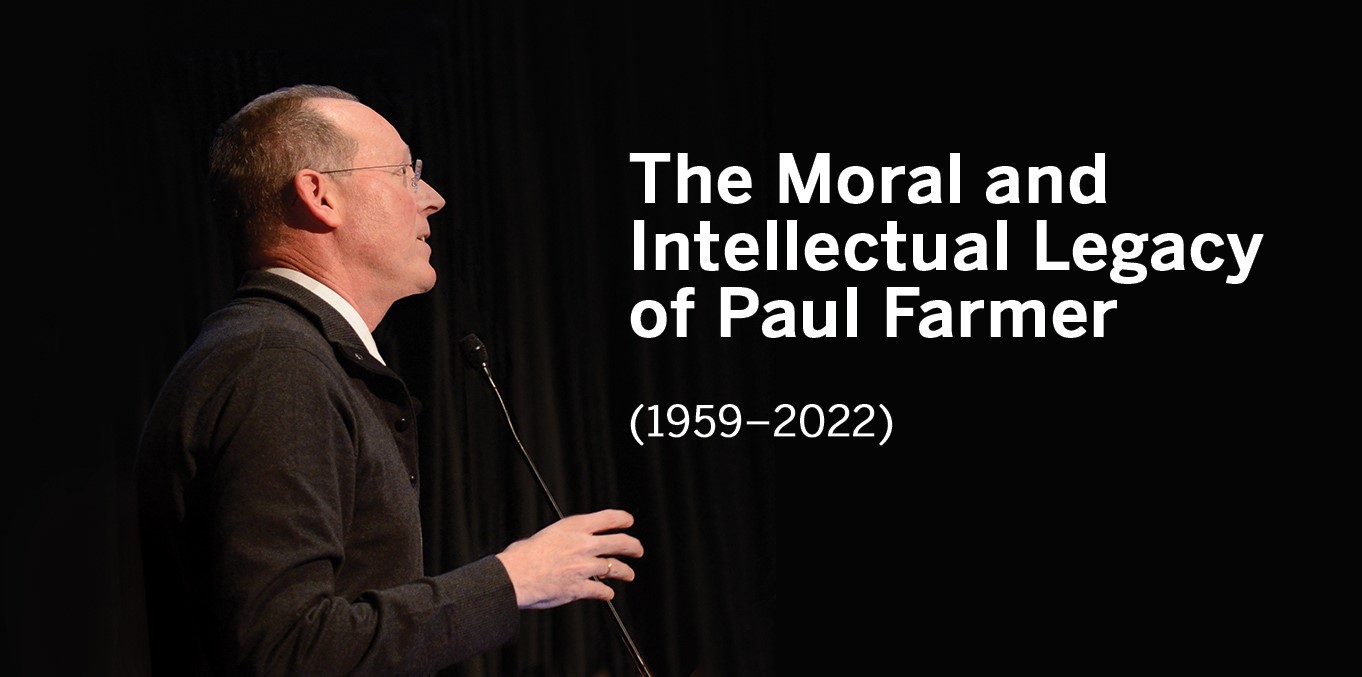Watch the Memorial Program
View the Program
Musicians:
Christine Shrock MD, violin Child Neurology Resident, Boston Children's Hospital.
Ellen Shrock, violin PhD candidate, Harvard BBS Graduate Program Program
Lisa Wong MD, viola Pediatrics, Harvard Medical School
Grant Riew, cello Medical student, Harvard Medical School
Solon Gordon, piano Software engineer
Watch the Inaugural Symposium
Read the Speaker Bios
Welcome and Introduction
Salmaan Keshavjee, Harvard University
Marty Zeve, Harvard University
Beyond Human Rights: Structural Violence and the Health of the Poor
Farmer brought the concepts of structural violence, immodest claims of
causality, and health equity to the center of global health scholarship, research,
and care delivery. His work aimed at a form of praxis that challenged
the social structures that perpetuate violence against the underserved.
Carole Mitnick, Harvard University
Joia Mukherjee, Harvard University
Mercedes Becerra, Harvard University
Kim Sue, Yale University
Ethnographic and Social Medicine Approaches to Social Suffering and Social Care
Ethnography was Farmer’s mode of knowledge generation in his scholarship
and clinical practice. This crucial research methodology, which draws upon
deep observation and participation, history and social context, was foundational to his work. Ultimately, it framed what he called the “resocialization” of medicine and care delivery.
Byron Good, Harvard University
Mary-Jo DelVecchio Good, Harvard University
Adia Benton, Northwestern University
Anne Becker, Harvard University
David Jones, Harvard University
Moral Theory of Health Care Delivery: Accompaniment and the Foundations of Health Care Praxis
Farmer shaped a moral philosophy of health care delivery based on the
Haitian Creole aphorism “Tout moun se moun” (Every person is a person). This philosophy countered what he often considered a utilitarian ethic of false
choices. Instead, he called for an ethic through which care would be distributed
based on need and the dignity of each human being.
Jamaica Kincaid, Harvard University
João Biehl, Princeton University
Haun Saussy, University of Chicago
Vikram Patel, Harvard University
Concluding Remarks
Allan Brandt, Harvard University
